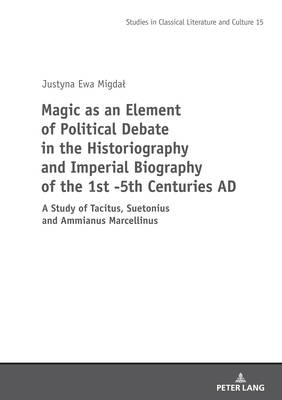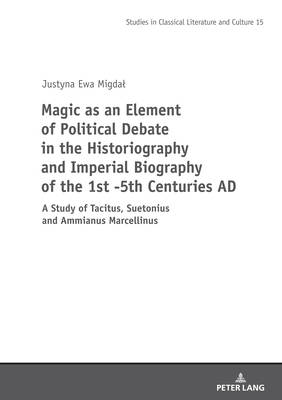
- Afhalen na 1 uur in een winkel met voorraad
- Gratis thuislevering in België vanaf € 30
- Ruim aanbod met 7 miljoen producten
- Afhalen na 1 uur in een winkel met voorraad
- Gratis thuislevering in België vanaf € 30
- Ruim aanbod met 7 miljoen producten
Magic as an Element of Political Debate in the Historiography and Imperial Biography of the 1st -5th Centuries AD
A Study of Tacitus, Suetonius and Ammianus Marcellinus
Justyna Migdal
€ 115,45
+ 230 punten
Omschrijving
Justyna Migdal has completed her Ph.D. in Classical Philology at the Jagiellonian University in Kraków. Her research focuses on magic in Ancient Rome, as well as Roman historiography and biography.
Specificaties
Betrokkenen
- Auteur(s):
- Uitgeverij:
Inhoud
- Aantal bladzijden:
- 548
- Taal:
- Engels
- Reeks:
- Reeksnummer:
- nr. 15
Eigenschappen
- Productcode (EAN):
- 9783631897997
- Verschijningsdatum:
- 26/06/2023
- Uitvoering:
- Hardcover
- Formaat:
- Ongenaaid / garenloos gebonden
- Afmetingen:
- 148 mm x 210 mm
- Gewicht:
- 866 g

Alleen bij Standaard Boekhandel
+ 230 punten op je klantenkaart van Standaard Boekhandel
Beoordelingen
We publiceren alleen reviews die voldoen aan de voorwaarden voor reviews. Bekijk onze voorwaarden voor reviews.







